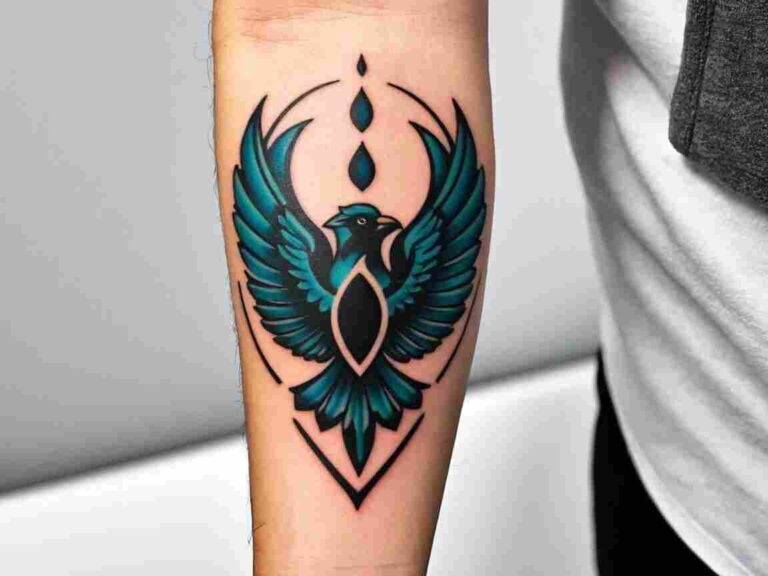Bahai Is It Gods Will To Heal Someone – Is It God’s Will to Heal?
In the Bahá’í Faith, healing is both physical and spiritual, guided by God’s will. Believers trust in divine wisdom, use medical treatment, and see illness as a path to spiritual growth.
The Role of Divine Will in Healing: A Comprehensive View from the Bahá’í Faith:

When exploring the profound question, “Is it God’s will to heal someone?” from the lens of the Bahá’í Faith, we must delve into a nuanced understanding of divine wisdom, human free will, and the role of suffering and illness in the spiritual journey.
Healing, in this context, transcends the mere physical realm and reaches deep into the spiritual and emotional dimensions of the human experience. The Bahá’í teachings provide a balanced and holistic approach to healing, one that integrates prayer, medical science, and an acceptance of God’s overarching will.
The Nature of God’s Will: Beyond Human Comprehension:
At the heart of the Bahá’í perspective on healing lies the belief that God’s will governs all aspects of life, including health and illness. However, Bahá’ís acknowledge that God’s wisdom is far beyond human understanding. While individuals may yearn for specific outcomes—such as the healing of an illness—Bahá’ís are taught to trust in God’s will, knowing that His plan may involve paths that are initially unclear or challenging.
Bahá’u’lláh, the founder of the Bahá’í Faith, emphasizes this notion in His writings, reminding believers that their perspective is limited, and that even trials and tribulations, including illness, are part of a divine plan intended for their growth and development. He explains that what appears to be a hardship in the moment may, in fact, be a blessing in disguise, leading to greater spiritual insights and transformation.
“Know thou that all men have been created in the nature made by God, the Guardian, the Self-Subsisting. Unto this subtle, this mysterious and ethereal Being He hath, according to His own name, ascribed a station which is above the comprehension of all beings and beyond the reach of their praise.”
(Bahá’u’lláh, Gleanings from the Writings of Bahá’u’lláh):
This passage underscores the Bahá’í belief that God’s will is both omnipotent and perfect, and that human beings, despite their prayers and desires, must ultimately surrender to God’s wisdom, accepting that His will is always oriented toward the greater good, even when it involves suffering or delay in healing.
The Dual Nature of Healing: Physical and Spiritual

In the Bahá’í Faith, healing is not viewed solely as a physical process, but as one that involves the entire being—body, mind, and soul. While physical health is undoubtedly important, the Bahá’í writings emphasize that true healing often takes place at the spiritual level.
This spiritual healing can manifest as inner peace, detachment from material concerns, and an increased reliance on God. Physical illness, therefore, is sometimes seen as an opportunity for spiritual growth, allowing individuals to cultivate qualities such as patience, trust, and gratitude.
The Bahá’í approach to healing is beautifully reflected in the Long Healing Prayer revealed by Bahá’u’lláh. This prayer calls upon God’s healing power, not just for the physical body, but also for the soul, highlighting the interconnectedness of spiritual and physical well-being’’
“Remove Thou, O King of eternity, the defects that are in me, and cure me, for the sickness hath seized me.”
(Bahá’u’lláh, Prayers and Meditations):
Through this prayer, believers express their faith in God’s power to heal both body and soul, while also acknowledging their dependence on divine will. Healing, in this context, becomes a journey of spiritual purification and strengthening, where the process of illness itself is viewed as a tool for developing virtues and drawing closer to God.
The Power of Prayer and Its Place in Healing:
Prayer is central to the Bahá’í understanding of healing. Bahá’ís believe that prayer is not merely a request for a specific outcome, such as the resolution of illness, but rather a means of aligning oneself with God’s will.
It is through prayer that individuals find the strength to endure suffering and the wisdom to accept the unfolding of God’s plan in their lives. In essence, prayer acts as a bridge between the human and the divine, offering both comfort and clarity during times of physical or emotional distress.
The Bahá’í Faith places great emphasis on the healing power of God’s word. Bahá’u’lláh’s prayers for healing invoke God’s attributes of mercy, compassion, and grace, and they are recited with the understanding that while God has the power to cure physical ailments, the outcome must align with His greater plan for the individual’s soul. The Long Healing Prayer is a particularly significant example, where believers ask for healing but also seek refuge in God’s wisdom, leaving the outcome in His hands.
“Thy Name is my healing, O my God, and remembrance of Thee is my remedy.”
(Bahá’u’lláh, Prayers and Meditations)
This line expresses the Bahá’í belief that ultimate healing lies in one’s connection to God and that the remembrance of God is a remedy for all kinds of suffering, whether physical, emotional, or spiritual. The act of turning to God in prayer, therefore, is both an acknowledgment of one’s limitations and a reaffirmation of faith in the divine.
The Role of Medicine: Harmony Between Faith and Science:

In addition to prayer, Bahá’ís are strongly encouraged to seek medical treatment when necessary. The Bahá’í Faith promotes a balanced approach to healing that honors both spiritual and material means. Bahá’u’lláh explicitly instructed His followers to use medical science as a tool for healing, recognizing that God has endowed humanity with the knowledge and skills to advance medical science.
“In all matters resort to the advice of physicians, for this is the commandment of God.”
(Bahá’u’lláh, Kitáb-i-Aqdas):
This passage illustrates the Bahá’í belief that science and religion are not in opposition but rather complementary forces. While prayer and trust in God are essential for healing, Bahá’ís also believe that medical professionals and treatments are instruments of God’s will. By seeking medical advice, Bahá’ís are not bypassing divine healing but are, in fact, participating in the process of healing through the means that God has provided.
`Abdu’l-Bahá, the son of Bahá’u’lláh and the appointed interpreter of His teachings, emphasized that while physical remedies are necessary, spiritual remedies—such as prayer, faith, and trust in God—should accompany medical treatment:
“Man should seek medical treatment; this is natural and necessary, but spiritual remedies must also be sought. For the disease which afflicts the body may be cured through material means, but it is necessary that the spiritual remedy be applied.”
(Abdu’l-Bahá, Tablets of Abdu’l-Bahá):
This holistic approach to healing aligns with the Bahá’í principle of harmonizing science and religion. Medical advancements are viewed as manifestations of divine knowledge, while spiritual practices like prayer are acknowledged as essential components of an individual’s overall well-being. Together, they promote a balanced and integrated path to health, reflecting the unity of both physical and spiritual dimensions of healing.
Illness as a Means of Spiritual Growth:

Another key element of the Bahá’í perspective on healing is the idea that illness and suffering are opportunities for spiritual growth. While physical health is important, Bahá’ís believe that the ultimate purpose of life is the development of the soul, and that challenges such as illness are integral to this process. Suffering, from a Bahá’í viewpoint, is not punitive but rather a means for refining the soul and preparing it for the next world.
Bahá’u’lláh explains that trials and difficulties, including sickness, serve to detach individuals from the material world and draw them closer to God:
“The more difficulties one sees in the world, the more perfect one becomes. The more you plough and dig the ground, the more fertile it becomes. The more you sharpen the steel by grinding, the better it cuts. Therefore, the more sorrows one sees, the stronger one becomes.”
(Bahá’u’lláh, Gleanings from the Writings of Bahá’u’lláh):
In this light, healing is not always about curing the body, but about the transformation of the soul. Illness may be part of God’s will, not only to test the individual but also to foster spiritual qualities such as patience, perseverance, and reliance on divine assistance. Even when physical healing does not occur, Bahá’ís believe that spiritual healing and growth are always attainable.
FAQ’s:
1. Is it God’s will to heal everyone?
Healing is ultimately aligned with God’s will, which may not always involve physical recovery but could focus on spiritual growth.
2. What role does prayer play in Bahá’í healing?
Prayer is central, not just for physical healing but to align oneself with God’s will, offering strength, clarity, and spiritual healing.
3. How does the Bahá’í Faith view illness?
Illness is seen as a means for spiritual growth, allowing individuals to develop virtues such as patience and trust in God.
4. Are Bahá’ís encouraged to seek medical treatment?
Yes, Bahá’ís are advised to use medical science alongside prayer, as both are seen as part of God’s healing plan.
5. Can illness be part of God’s plan?
Yes, illness can be a test or challenge intended for spiritual development, helping believers grow closer to God
Conclusion:
From the Bahá’í perspective, healing involves the mind, body, and soul, ultimately guided by God’s will. Bahá’ís pray for healing and seek medical care, trusting that God’s plan may encompass both physical recovery and spiritual transformation. Illness is seen as an opportunity for spiritual growth and alignment with God’s will.






